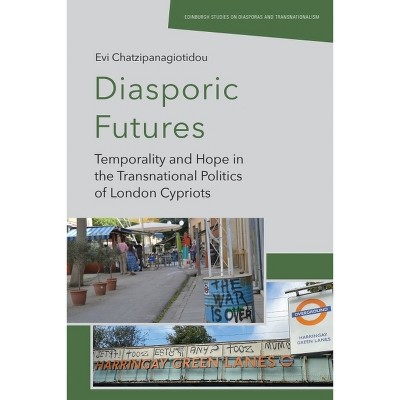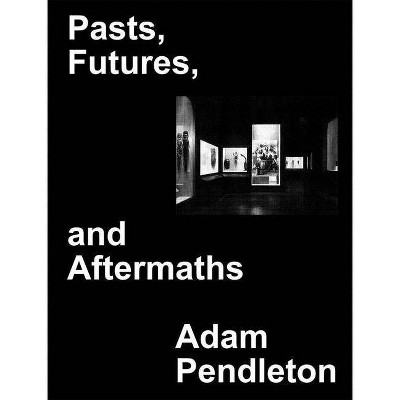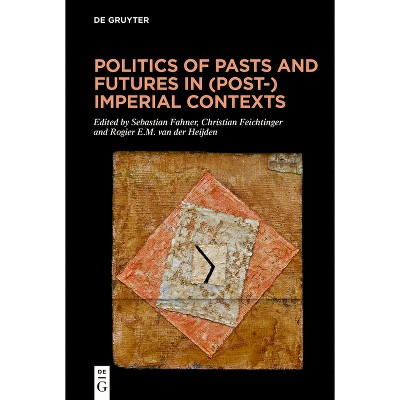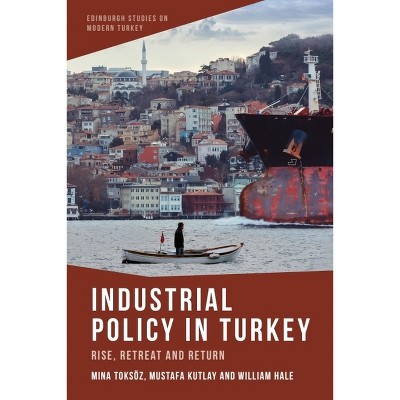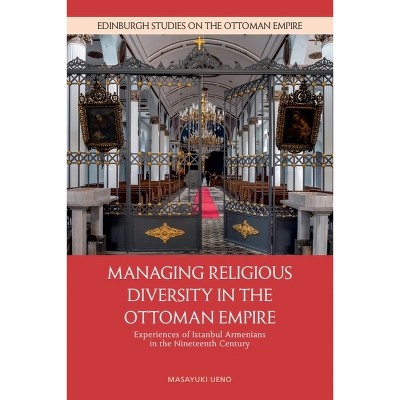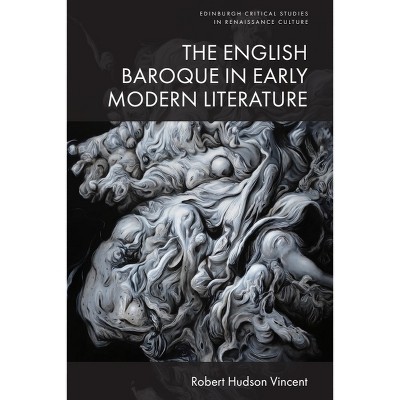Utopian Pasts and Futures in the Contemporary American Novel - by Tim Lanzendörfer

About this item
Highlights
- Utopian Pasts and Futures in the Contemporary American Novel highlights the emergence of a literary mode, speculative historism, over the past two decades in U.S. literature.
- About the Author: Tim Lanzendörfer is Heisenberg Research Associate Professor for Literary Theory, Literary Studies and Literary Studies Education at Goethe University, Frankfurt, Germany.
- 240 Pages
- Fiction + Literature Genres, Fantasy
Description
About the Book
Examines the connection between historical and speculative fiction to offer a new form of literary-genre fiction that registers the upheavals of the early twenty-first centuryBook Synopsis
Utopian Pasts and Futures in the Contemporary American Novel highlights the emergence of a literary mode, speculative historism, over the past two decades in U.S. literature. Discussing in depth novels by writers such as Ken Kalfus, Joyce Carol Oates, and Colson Whitehead, among others, it integrates questions of critical method, genre, form, and literary theory, all of which have some urgency today. Addressing itself to the question of how to read this mode through a form of utopian hermeneutics, this study explores the formal constitution, narrative choices, and place in the wider literary market of a mode that it believes to be constitutively important for understanding American literature's struggle with the possibility of imagining hopeful futures.
From the Back Cover
[headline]Examines the connection between historical and speculative fiction to offer a new form of literary-genre fiction that registers the upheavals of the early twenty-first century Utopian Pasts and Futures in the Contemporary American Novel highlights the emergence of a literary mode, speculative historism, over the past two decades in US literature. Discussing novels by Ken Kalfus, Joyce Carol Oates and Colson Whitehead, among others, it provides detailed critical readings of key writers of the early twenty-first century and integrates questions of critical method, genre, form, and literary theory, all of which have some urgency today. Addressing itself to the question of how to read this mode through a form of utopian hermeneutics, this study explores the formal constitution, narrative choices, and place in the wider literary market of a mode that Lanzendörfer argues is constitutively important for understanding American literature's struggle with the possibility of imagining hopeful futures. [bio]Tim Lanzendörfer is Heisenberg Research Associate Professor for Literary Theory, Literary Studies and Literary Studies Education at Goethe University, Frankfurt, Germany. His previous publications include Books of the Dead (2018) and The Professionalization of the American Magazine (2013), which won the Research Society for American Periodicals Book Prize in 2015. He is also editor of the Routledge Companion to the British and North American Literary Magazine (2021) and co-editor of Medial Afterlives of H. P. Lovecraft (with Max Dreysse Passos de Carvalho, 2023) and of The Novel as Network (with Corinna Norrick-Rühl, 2020).Review Quotes
Lanzendörfer gives a fascinating and persuasive account of what he calls "speculative historicism," a literary mode that deploys the logic of speculative genres to figure history in surprising new ways. He undertakes many excellent and provocative readings of important novels, providing scholars of our contemporary crisis much to ponder and debate.
--Lee Konstantinou, University of MarylandAbout the Author
Tim Lanzendörfer is Heisenberg Research Associate Professor for Literary Theory, Literary Studies and Literary Studies Education at Goethe University, Frankfurt, Germany. His previous publications include the monographs Books of the Dead: Reading the Zombie in Contemporary Literature (UP Mississippi, 2018) and The Professionalization of the American Magazine: Periodicals, Biography, and Nationalism in the Early Republic (Schöningh, 2013), which won the Research Society for American Periodicals Book Prize in 2015. Most recently, he has been the editor of the Routledge Companion to the British and North American Literary Magazine (Routledge 2021) and co-editor of The Novel as Network: Forms, Ideas, Commodities (with Corinna Norrick-Rühl, Palgrave Macmillan, 2020) and of Medial Afterlives of H.P. Lovecraft: Comic, Film, Podcast, TV, Games (Palgrave Macmillan, 2023).
Shipping details
Return details
Trending Fiction






